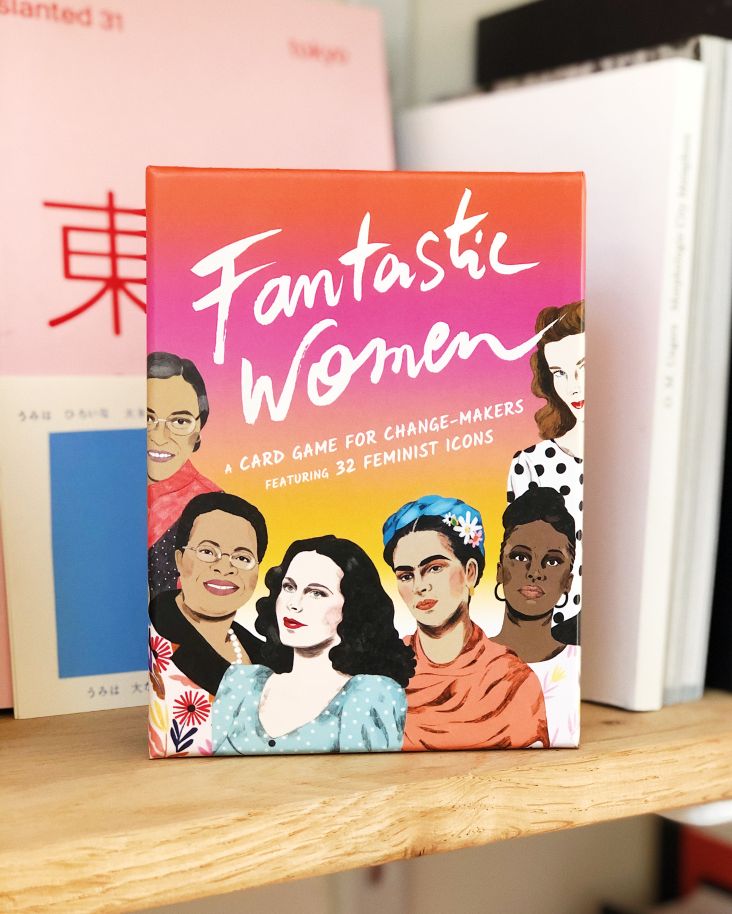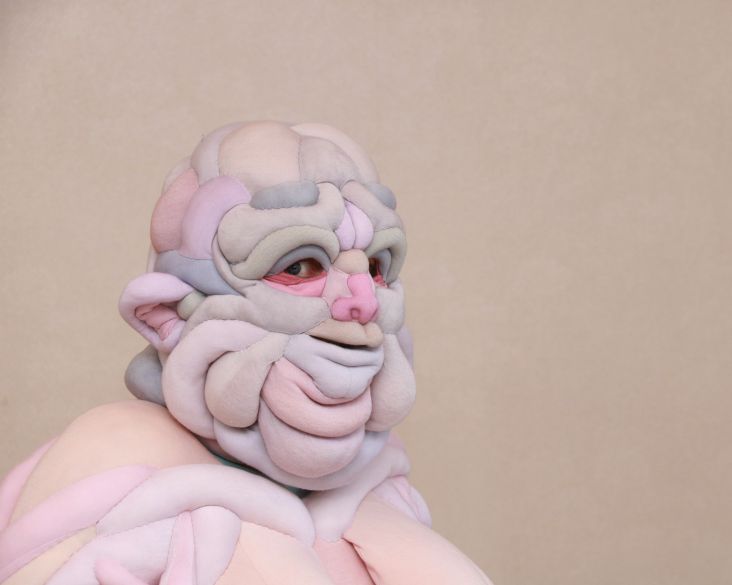Max Ottignon of Ragged Edge on why he felt it was time to rebrand his own branding agency
London-based brand design agency Ragged Edge (the team behind Camden Market, Grey Goose Vodka and energy group Bulb) spends all day telling businesses what they need to do to stand out and challenge the status quo.
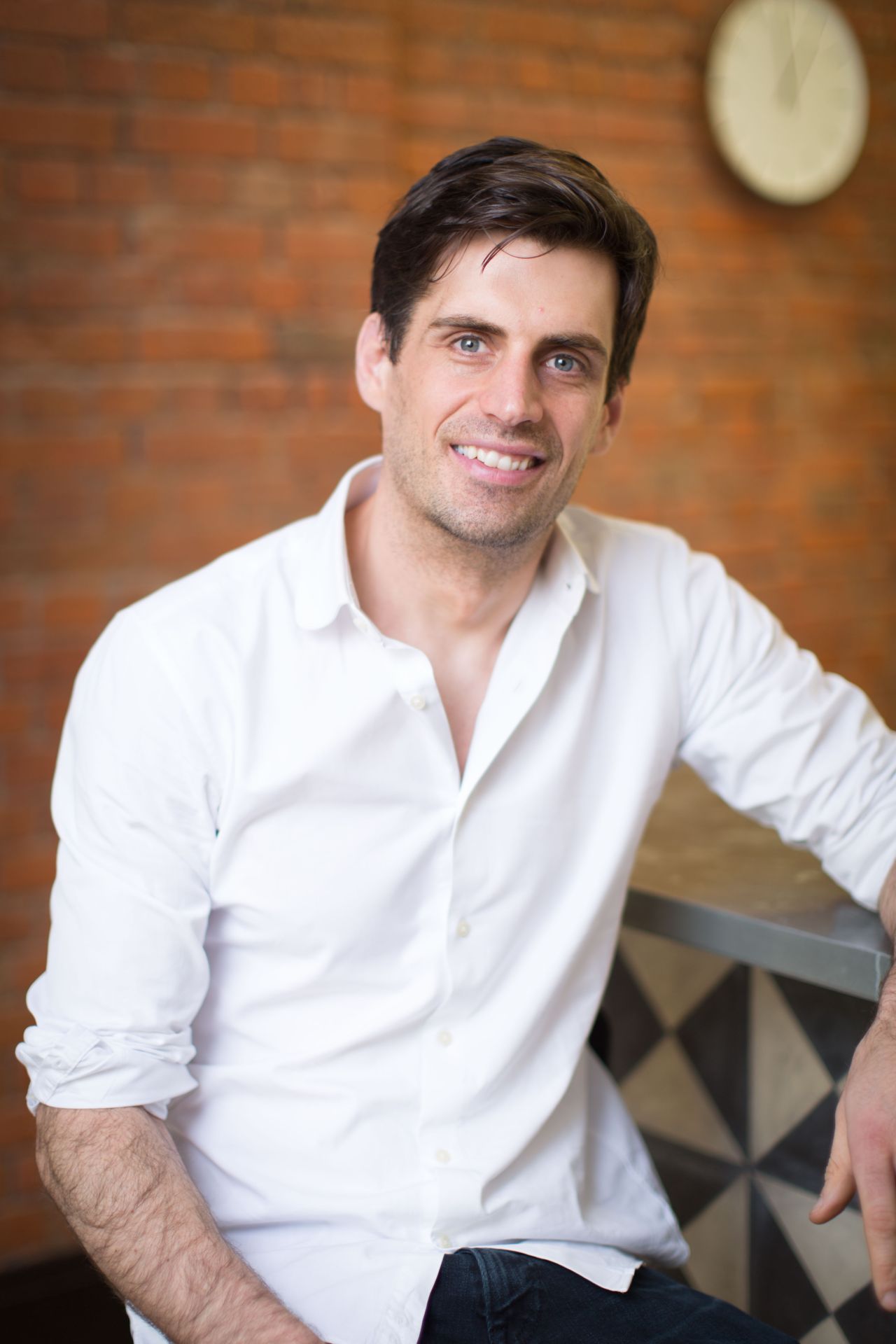
But then an email made co-founder Max Ottignon realise he wasn't practising what he preached. We caught up with Max to find out more.
What triggered the realisation that Ragged Edge's brand needed a bit of attention?
Eighteen months ago, I received an email that began with "unfortunately". A potential client had chosen to go with an agency they described as 'almost identical in terms of quality of work, ambition, understanding of our business, and cost.
Once I'd launched my phone across the room, I took a few breaths, and it started to sink in. The agency they'd chosen weren't that similar. For better or worse, the experience of working with us would have been materially different, as would the result.
We were anything but identical. But we hadn't done a good enough job at communicating that. We were a branding agency with a brand problem.
What did you do after the penny dropped?
In the wake of that email, we spent a lot of time looking at other agencies and talking to clients about their own experiences.
As businesses, branding agencies share similar values, go after the same clients, the same talent, and follow a similar process to deliver the work.
That shows in most of our identities, which are designed to take a back seat to the work. Carefully designed, but deliberately neutral and inoffensive. All supported with copy that functions as a checklist of indistinguishable brand buzzwords.
The upshot? By putting the work first, we've commoditised ourselves. Without any other meaningful differences, we're forcing clients to judge us by case studies and a grid of logos. We're reinforcing the impression that all agencies are the same. No wonder creative pitching is still a thing.
Why did you feel it was necessary to go back to the drawing board?
It was obvious that fixing our brand problem required more than a new identity. We knew we'd have to redefine Ragged Edge from the inside out. Everything was up for grabs.
I'm not going to pretend it was easy, or that we got everything right. Timings and process slipped. We made multiple false starts, and decisions went back and forth. We began to question whether we would ever get to the end of it. A six-month project became an 18-month project.
If nothing else, it reinforced the value of what we, as an industry, do. And why in-house rebrands rarely work. It's much easier to be effective as a third party, coming in without being weighed down by too much knowledge, free to make recommendations and choices.
It also gave valuable insight into our clients' experience of the process. Particularly the weight of the decision-making, knowing that they're going to have to embrace the results for years to come.
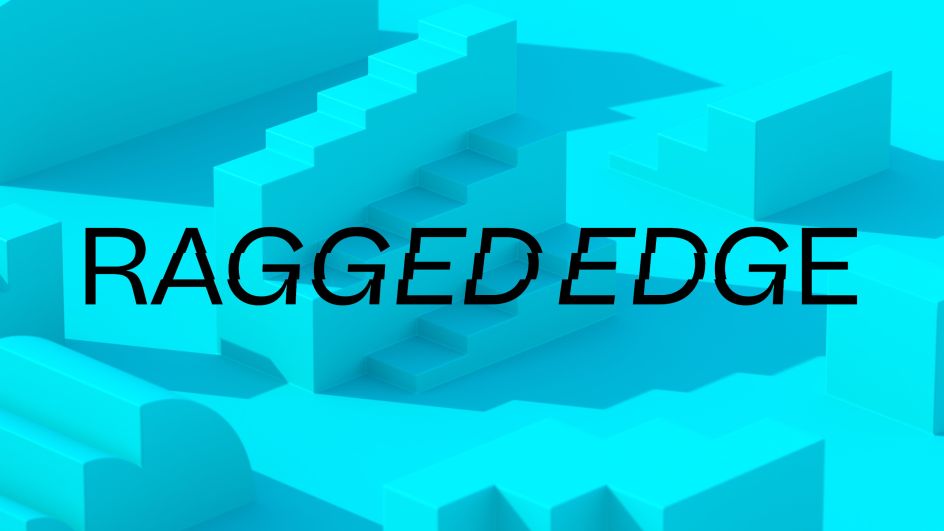
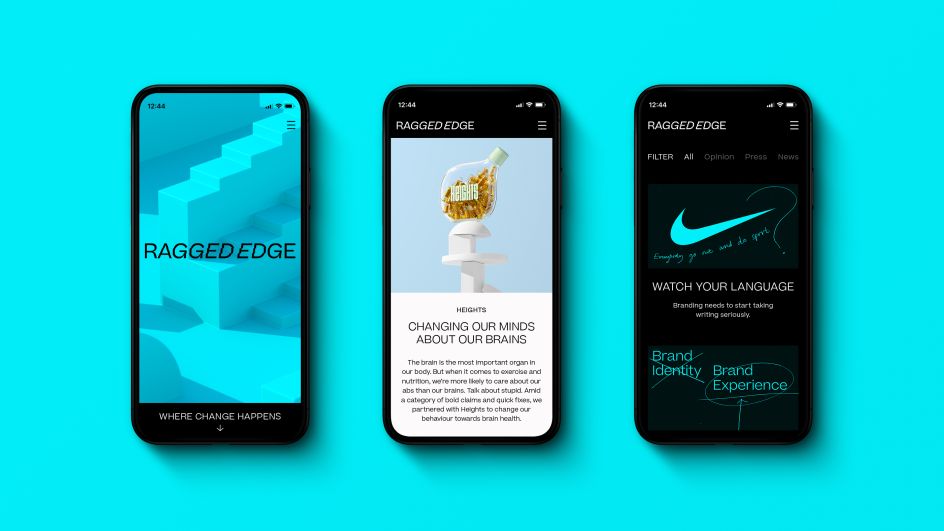
What was the hardest part of the project?
We always say that if your brand strategy doesn't change what you're doing, it's not a strategy. So we committed to practising what we preach. That was daunting. It meant opening up every part of a business that we'd been optimising for over a decade. And it meant making choices that would take us well beyond our comfort zone.
Talk us through the process.
We started by asking when we were at our best. Our most effective work had come when we were using brand to help people solve seemingly impossible problems. How do you make people care about their energy provider? How do you get people who live for the moment to invest in their future? Helping visionary teams and individuals battle improbable odds, and using brand to change behaviour, change organisations and change categories. Those are specific challenges faced by a particular set of people. We call them changemakers, the basis for our new brand.
By defining ourselves around the specific challenges we were best at, we were able to double down on building an agency to solve them.
We used the strategy to redefine our culture. It gave us clarity around what we value as an agency, what we offer our team, and who we hire and how we work. It gave us the direction to change everything from our benefits package and individual objectives to our process and the makeup of the leadership team.
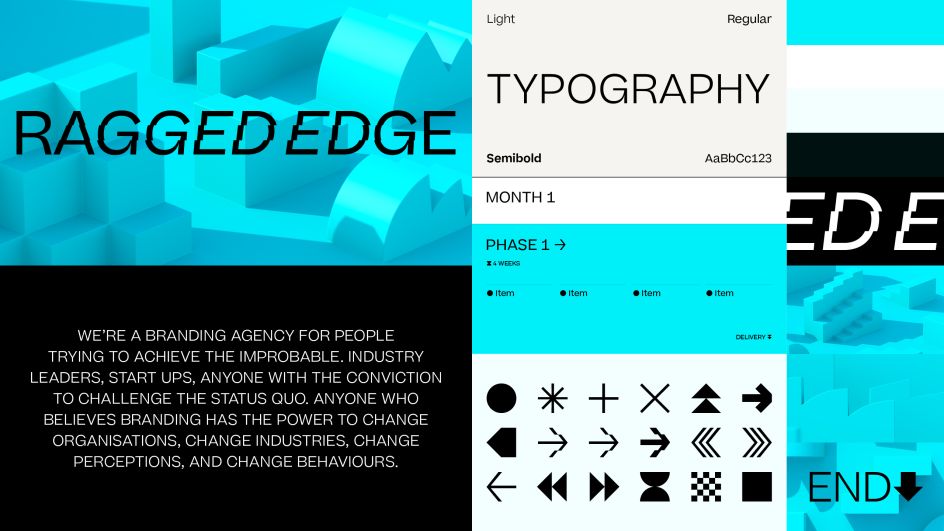
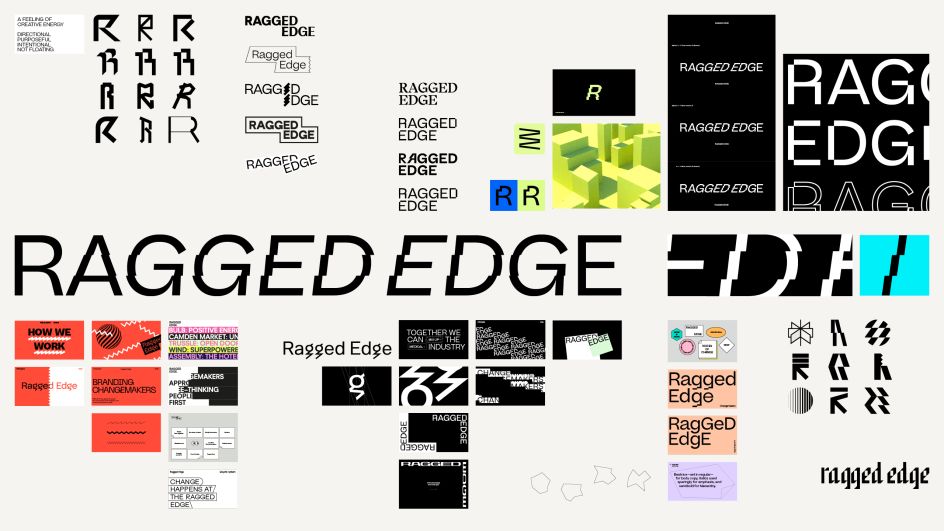
What's been the most noticeable outcome so far?
It's changed who we work with. When an enquiry comes in, there's now a strong chance we'll have to turn it down or refer it to someone else. That's scary, mainly when there's a significant budget attached.
The first few times it happened, we wondered if we'd made a terrible mistake. But that selectiveness means the people we end up working with really buy into what we're doing. They have shared values, and they believe in our approach. They understand what we do differently, and that's why they've chosen us, not because of our past but because of their future.
And by changing ourselves internally – who we work with and how we work with them – the output changed too. In the next few months, as our latest work starts to make its way into the world, I'm confident the change will be clear.
You say your new identity means that not everyone likes you. How's that a good thing?
Towards the end of the project, we got around to changing our identity, creating a system where every design and writing decision was made to communicate the idea at our heart.
You can judge the success of that for yourself. (Does it work? Did we go far enough?) But my favourite thing is that not everybody likes it. Ragged Edge is no longer for everyone. That's a good thing, even as it terrifies me to write it.
And the most significant change is yet to come. The new brand isn't the end, it's the start of a process. We know that to deliver on the promise we've made to ourselves, we need to keep pushing beyond what's comfortable. We have so much more to change.
Do you think it'll have a positive effect in the broader industry?
Over the period we've been working on our brand, I've noticed other agencies becoming bolder and more directional in how they express themselves. I see that as a real positive. We shouldn't be battling with everyone else to work on the same jobs – that's a terrible message to send to clients and the industry as a whole. It commodifies our talent and undersells our expertise. We all have distinct strengths. We should play to them.

















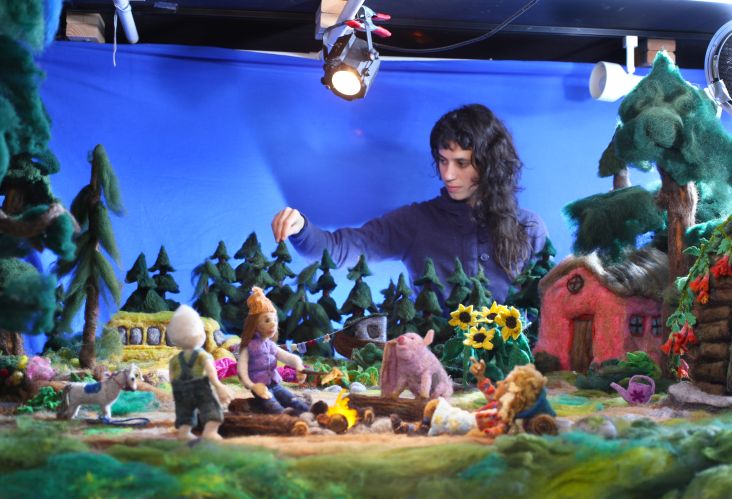
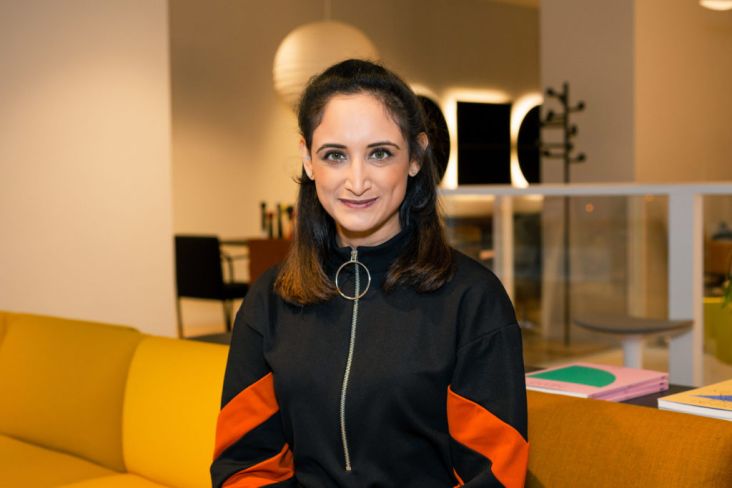

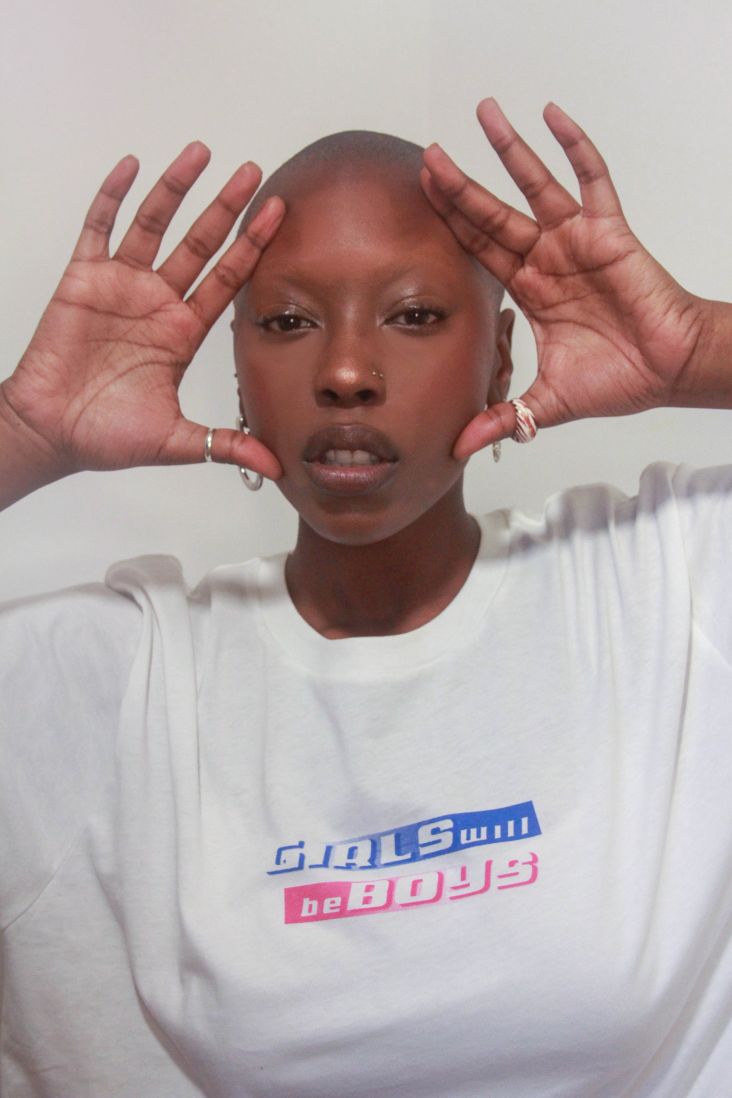
](https://www.creativeboom.com/upload/articles/bf/bfce7804d3fddb08b654a5eeaf4ed411b7d4e7ca_732.jpeg)
